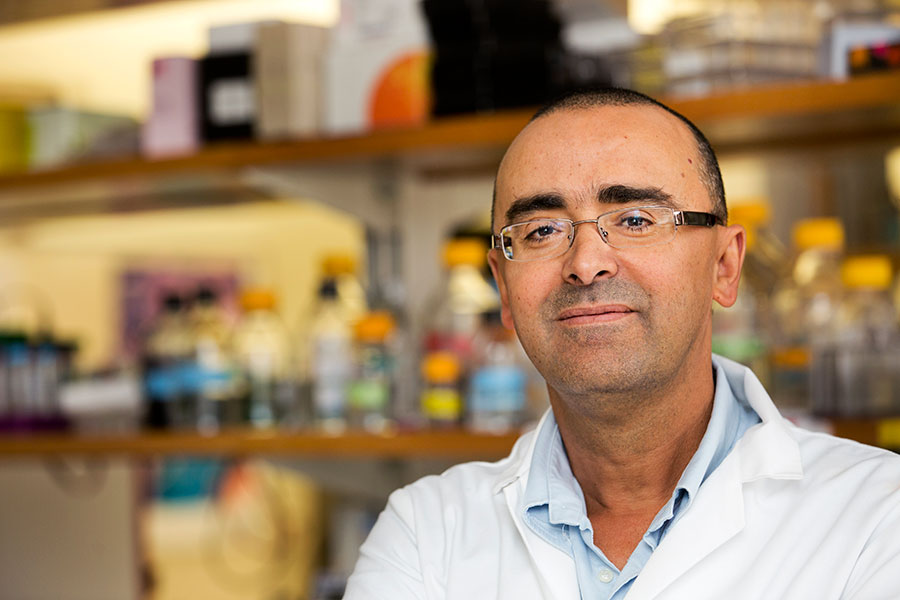
Florida State University Professor Mohamed Kabbaj, a neuroscientist in the College of Medicine, has received a $1.9 million grant from the National Institute of Mental Health to study how the brain helps us maintain lifelong social bonds through epigenetics.
Epigenetics is the study of biological mechanisms that switch genes on and off without changing the structure of DNA itself. Previously, Kabbaj was the first neuroscientist to demonstrate epigenetic changes during the initiation of social bonding. With this grant, he and his team will examine how that bond is maintained for life.
“There are a lot of psychopathologies where you have a reduction in social behavior and social bonding, like autism and schizophrenia,” Kabbaj said. “It’s important to understand the molecular mechanisms and brain circuits involved in social behaviors.”
Changes in our environment, such as stress and diet, or major life events such as puberty and pregnancy can all increase or decrease the expression of different genes, potentially altering us permanently. Epigenetics is what causes those changes.
Kabbaj studies the prairie vole because the rodent develops social monogamy similar to humans. With prairie voles, mating and quality time with the partner change their gene expression to facilitate social bonding and a preference for the partner. Now Kabbaj and his lab want to find out how the couple maintains this new bond.
“When the male and female prairie voles develop social bonding, the reward pathway in the brain’s pleasure center, the nucleus accumbens, gets activated,” Kabbaj said. “Prairie voles find the experience very rewarding, bonding gets reinforced, and that is one reason they stay together for life.”
After spending two to three weeks together, both male and female voles have a striking change in their behavior: They become very aggressive toward intruders, and they exhibit increased paternal and maternal behaviors.
What happens in the voles’ brains to make them develop those behaviors to maintain their social bond? What epigenetic mechanisms are implicated? Those are questions Kabbaj will test for the next five years.
He has already observed one change as voles maintain monogamy.
“There is an increase in some dopamine receptors that mediate aggressive behaviors toward intruders,” Kabbaj said. “We’re trying to see what causes this increase at the epigenetic level.”
The grant, in collaboration with Zuoxin Wang, Distinguished Research Professor of Psychology and Neuroscience, will also help Kabbaj discover new genes that help maintain social bonding.
“We’re going to do genome-wide sequencing studies to determine whether there are other novel genes implicated,” Kabbaj said. “Some of these mechanisms could be targets for developing treatments for deficits in social attachments. If we understand more about the mechanism behind social bonding in these voles, in the future it may apply to humans, too.”




